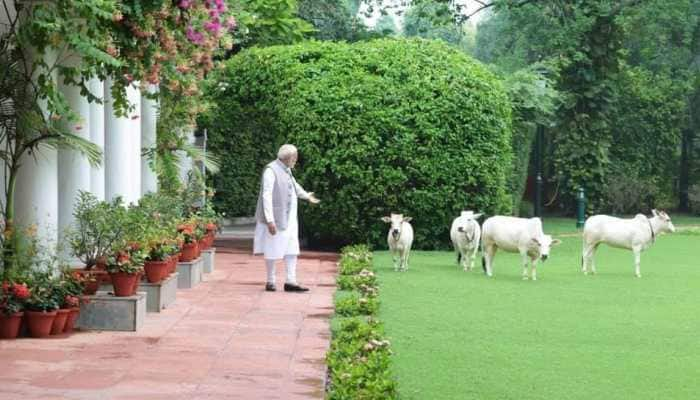Like Delhi, Lahore chokes on toxic air
Lahore - just over 400 kilometres from New Delhi - is choking under a toxic sky with high pollution levels. Much like in the Indian capital, effective on-the-ground measures remain a distant dream in Pakistan's second-largest city.
- Lahore has recorded an average in excess of 200 in Air Quality Index (AQI) measurement in recent days.
- No warning or alert has been issued by authorities in Pakistan's second-largest city.
- Crop burning in India is considered one of the biggest reasons for the toxic air. Seven million cars in city of 11 million another factor.
Trending Photos
) This image was tweeted by @PakAirQuality.
This image was tweeted by @PakAirQuality. New Delhi: Indian and Chinese cities are now notorious for their polluted air which chokes its citizens and are a major cause of premature deaths. Pakistani cities though are not far behind with Lahore almost disappearing under a haze of toxic air in the first couple of November days.
Pakistan's second-largest city has reported alarming levels of air pollutants in the last few days and the Air Quality Index (AQI) has hovered around the 225 mark. AQI between 0 and 50 is considered safe while any figure between 200 and 300 is deemed 'Very Unhealthy'. What is more alarming than the alarming level of air pollution though is that the city has not sounded an alert and, according to a Geo TV report, has no effective plan in place to combat the threat.
According to the local environmental department, there are a number of reasons for the rise in pollution in Lahore around this time of the year. Waste burning and pollution from seven million vehicles in a city of 11 million are two primary causes. The department has also said that crop burning in India contributes to Lahore's dismal air quality - almost as much as it does in New Delhi.
While authorities in India have not been able to aggressively crack down on crop burning in Punjab and Haryana, Pakistani authorities do not seem too perturbed either. Last month, the government in Pakistan's Punjab suggested a few measures including more public awareness, better traffic management and ban on burning municipal waste. On ground level though, the air above remains clogged - much like in Delhi where despite Graded Response Action Plan (GRAP) coming into effect, the average AQI has been well over the 300-mark. Meanwhile, residents in both cities - 400 kilometres apart - gradually choke towards a health emergency.
Live Tv







)
)
)
)
)
)
)
)
)
)
